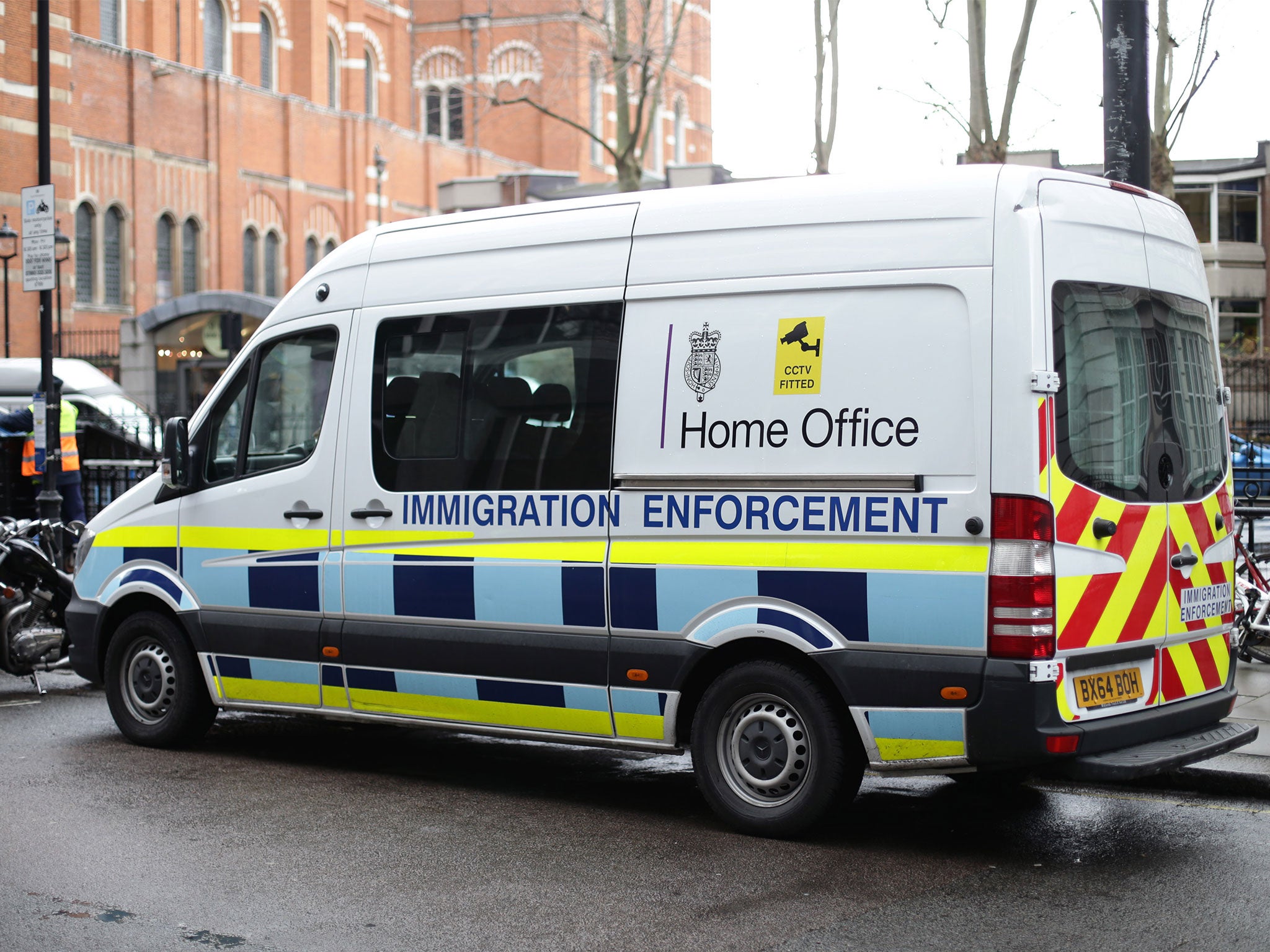NHS told to stop handing over patient data to Home Office for immigration enforcement
'If patients are refusing to visit the doctor for fear of repercussions from the Home Office, it is not only a danger to that individual’s health, but it could also pose a threat to the wellbeing of the public'

Health service officials have been reprimanded for putting the health of vulnerable migrants, and the wider public, at risk and told to stop handing over confidential information to immigration officials immediately.
The chair of the Health Select Committee has written to NHS Digital saying it must withdraw from a deal with the Home Office to trace immigrants through their personal details.
Committee chair Dr Sarah Wollaston said NHS Digital had failed to consider the public interest in maintaining the fundamental principle of patient confidentiality or the ethical implications of sacrificing it.
These were laid bare in an evidence session earlier this month when charities told the committee that one woman, a domestic worker, died because she was “too frightened” to seek help after contracting pneumonia.
Meanwhile, the British Medical Association warned that the deal “is already having a real effect on patients” and their trust in their doctors.
In the letter, Dr Wollaston said the NHS “undoubtedly” holds information useful to the Home Office, but it “should not place that above the serious adverse consequences of such a decision”.
It adds: “We are seriously concerned about the way NHS Digital has approached its duty to respect and promote confidentiality.
“We call for a halt to the present system of information-sharing and a full review of the original memorandum of understanding with the Home Office.”
The Home Office makes thousands of requests each year through the deal with NHS Digital and the Department of Health and only a fraction – around 3 per cent – are turned down.
Requests are made for individuals who are being sought for immigration offences, such as missing a reporting requirement, absconding from immigration control or exceeding their right to stay in the UK.
Details handed over include non-clinical information, such as the patient’s name, date of birth, last known address and their GP’s contact information.
The full extent only came to light in January 2017, and official figures show 8,127 requests were made in the first 11 months of 2016, leading to 5,854 people being traced.
The Health Select Committee said it was concerned that the deal, which was recently renewed by NHS Digital, makes no reference to the importance of medical confidentiality.
It also warned the NHS had failed to consult organisations responsible for maintaining patient confidence in the medical profession and data governance, like the General Medical Council and National Data Guardian.
According to MPs, NHS Digital “comprehensively ignored” the advice of Public Health England when it warned there could be serious consequences to public health if migrants with highly infectious diseases such as tuberculosis or HIV didn’t seek medical help.
Instead, the Government argued no consultation was needed because the deal is just an “internal” document that “streamlines” existing data-sharing.
NHS Digital has also said there is a risk in leaving vulnerable people unsupported in the community to be considered.
To which the Health Select Committee responded: “The purpose of tracing is not to provide these individuals with medical assistance but to take enforcement action, presumably leading to deportation, and it seems to us to be misleading to include this point.”
Dr John Chisholm, the BMA’s ethics chair, strongly supported the committee’s intervention, adding: “We know this agreement is already having a real effect on patients – and in turn their relationship with doctors. That relationship is built on a foundation of trust, and the arrangement between NHS Digital, the Home Office and the Department of Health is eroding this.
“If patients are refusing to visit the doctor for fear of repercussions from the Home Office, it is not only a danger to that individual’s health, but it could also pose a threat to the wellbeing of the public if communicable infectious diseases are being diagnosed and treated at a later stage."
Charities also welcomed the request from NHS Digital, saying it had failed in its duty to protect patient information.

Deborah Gold, chief executive of the National Aids Trust, said: “NHS Digital is meant to be the trusted safe haven for patient information. Sadly it has proven to be nothing of the kind and has been far too eager to breach our confidentiality.
“Scaring people away from healthcare has grave consequences for the individual and, in cases involving infectious disease, can endanger public health.”
A spokesperson for NHS Digital said: “We can confirm we have received a letter from the chair of the Health Select Committee. We will consider it carefully and will respond fully in due course.”
A Government spokesperson said: “Non-clinical information is shared on occasion between health agencies and the Home Office to locate individuals suspected of committing immigration offences – this data is strictly controlled and only shared if there is a legal basis to do so.
“The memorandum of understanding simply streamlines existing processes and does not involve additional data being provided to the Home Office. Urgent and emergency care is always available from the NHS regardless of immigration status.
“We will carefully consider the points raised by the Health Select Committee.”
Join our commenting forum
Join thought-provoking conversations, follow other Independent readers and see their replies
Comments
Bookmark popover
Removed from bookmarks